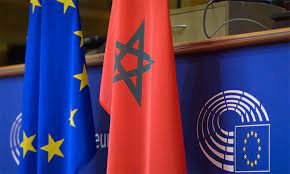
Several European Commissioners and Members of the European Parliament deplored the ruling of the EU Court of First Instance concerning the agriculture and fisheries agreements with Morocco, and reaffirmed their support for the “strategic” partnership with the Kingdom.
The European Commission stressed, Wednesday, the imperative to preserve the partnership with Morocco.
European Commissioner for Neighborhood Oliver Varhelyi emphasized in a tweet that “the Partnership with Morocco is among the strongest of the EU in the southern neighborhood.”
“It is important to preserve this partnership, consolidate it and develop it with mutual trust and respect,” added the European Commissioner, who said that he was in contact with the Moroccan Foreign Minister on the decision.
The European Court of Justice delivered, Wednesday, its judgment in first instance concerning the action for annulment of the decisions of the European Council on the agriculture and fisheries agreements with Morocco.
In a joint statement following the decision, Morocco and the EU affirmed that they will remain fully mobilized to continue their bilateral cooperation and united to defend the legal security of their partnership agreements.
Several MEPs have also regretted the court’s decision as prejudicial to the strategic partnership existing between the EU and Morocco.
In tweets, these MEPs stressed that the agriculture and fisheries agreements between Morocco and the EU have directly benefited the population of the Moroccan Sahara, insisting that the polisario has no legitimacy to challenge these agreements.
The Belgian MEP, Frederique Ries, considered the decision of the EU court “disappointing” and “contrasts with the efforts made on the ground”, noting that “it is necessary to take into account the political realities of the Sahara issue and avoid the traps of the polisario”.
“We must reassure our Moroccan partner as much as the European fishermen active in these waters: it is time to deepen our relations, not the other way around,” added Ries.
The Bulgarian MEP, Petar Vitanov said that Morocco is “the most stable and reliable country in the region, especially in terms of security, migration and trade,” insisting that “we must give it all our support”.
“I am convinced that the EU and Morocco will remain united to defend their partnership and their agreements against external actors,” he said.
For his part, the Bulgarian MEP Andrey Kovachev, said that the EU and Morocco are key partners in many important areas such as the economy, trade, security, energy transition, regional stability and must further strengthen their cooperation.
He also recalled that the reports of the European Commission confirm the benefits of the agriculture and fisheries agreements for the population of the Moroccan Sahara.
Hungarian MEP László Trócsányi also expressed his “strong” support for the “strategic” relationship between Morocco and the EU, while Polish MEP Anna Fotyga insisted that the EU court’s decision “cannot impact strategic relations, bring uncertainty to businesses and harm the local population”.
“The polisario is a destabilizing element in the region. It has neither the legitimacy nor the representative capacity to attack the EU-Morocco agreements,” she added.
The Bulgarian MEP, Ilhan Kyuchyuk, reiterated that “Morocco is a strong neighbor of Europe and a source of stability and security,” stressing that the EU and Morocco must remain united and continue their strategic and economic partnership”.
Czech MEP Tomáš zdechovský, for his part, stressed that “Morocco is a key partner of the EU in the neighborhood and the most stable country in the region,” expressing confidence that Rabat and Brussels “will remain united to defend their partnership and their agreements against external actors”.
